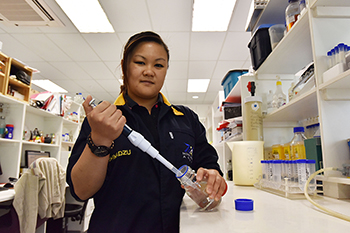Latest News Archive
Please select Category, Year, and then Month to display items
![]()
Programme
Safety Week is approaching, and all members of the University of the Free State (UFS) and the broader community are invited to attend the series of events which is to take place on the Bloemfontein and South campuses from 3 to 6 September 2018.
Issues to be discussed include the handling of sexual assault, gender equality, mental health, personal and road safety. Representatives from, among others, the Sector 3 Community Policing Forum, South African Police Services, Mangaung Local Municipality, Embrace A Sister organisation, Next Chapter organisation, and the Gender and Sexual Equity office will deliver keynote addresses.
Bloemfontein Campus:
3–5 September 2018
12:30–15:00
Thakaneng Bridge
South Campus:
6 September 2018
13:00–15:00
Cafeteria area
Great prizes will be given away. Save the date, don’t miss out!
The impact of personal care products on water resources in the Free State
2015-12-14

Jou-an Chen
Photo: Charl Devenish
|
Water is of the utmost importance in personal hygiene. Most people can hardly have a day go by without taking a shower in the morning and at night. However, it is this very habit that is increasingly polluting the water resources in South Africa.
Contaminants found in pharmaceutical and personal care products have been accumulating in water masses in recent years. These contaminants especially refer to hormones in medication, as well as colouring agents and fragrances used in soap, shampoo and body lotions.
“Little information and data are available on the prevalence of these contaminants, and on how high the level of pollution really is,” says Jou-an Chen, researcher in the Department of Microbial, Biochemical and Food Biotechnology at the UFS.
Her research particularly focuses on the prevalence and impact of those contaminants.
“Because these substances have not been properly investigated, we are not sure how widely it occurs and whether it is harmful to the environment. It was precisely the lack of information that has inspired me to investigate further.”
“If we could identify the contaminants and what it is doing to the environment, it could make a valuable contribution to directives on water quality standards.”